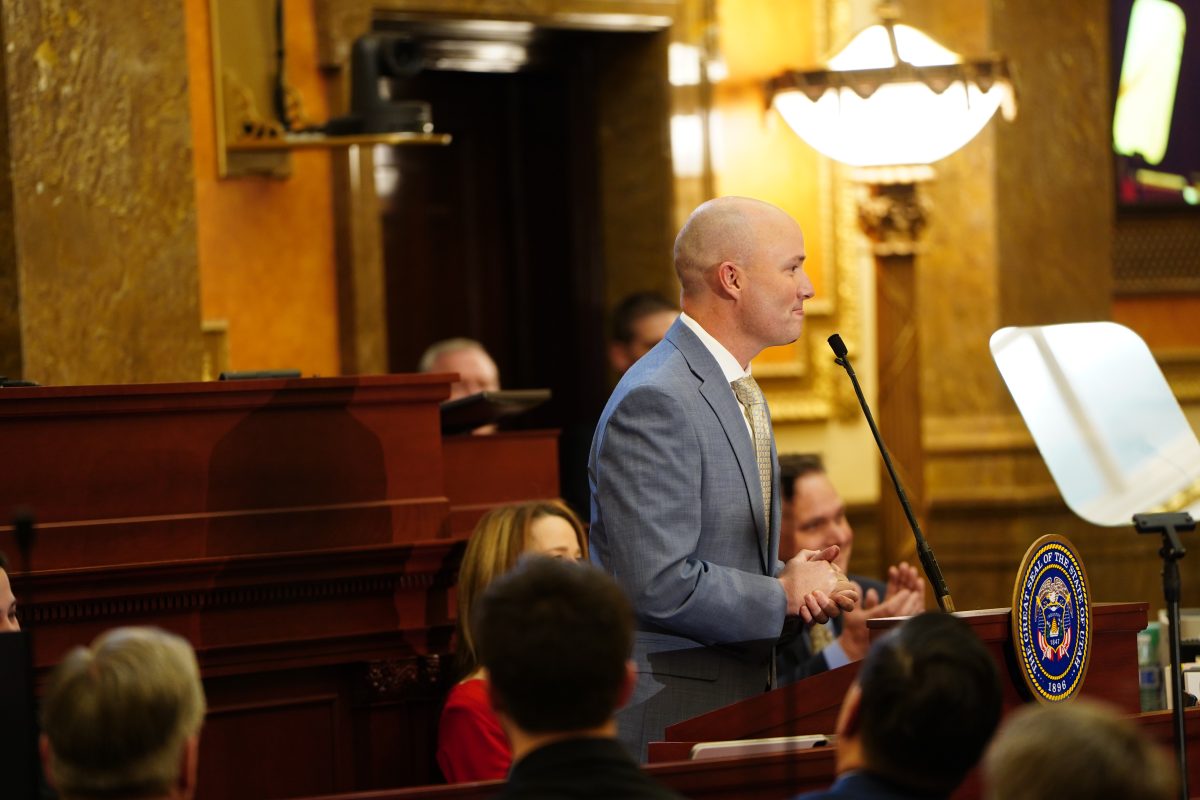Utah’s state legislature is currently in session and there have been multiple bills introduced and passed since the session began on Jan. 16. There have been a total of 19 bills passed and six of them were signed on Jan. 30 by Utah Gov. Spencer Cox.
One of these bills is the controversial House Bill 261, titled “Equal Opportunity Initiatives,” sponsored by Republican Rep. Katy Hall and Republican Sen. Keith Grover.
“This bill prohibits an institution of higher education, the public education system and a governmental employer from taking certain actions and engaging in discriminatory practices,” the General Description of HB261 states.
This means that institutions of higher education and other governmental settings, like schools and government jobs, will no longer be able to ask any current, future or past employees or students about any information that may lead to differential or preferential treatment and will no longer be able to create any department or program that may lead to differential treatment.
“We’ve been concerned about some DEI programs and policies, particularly with hiring practices, and this bill offers a balanced solution,” Cox’s public release said.” I’m grateful to the Legislature for not following the lead of other states that simply eliminated DEI funding with no alternative path for students who may be struggling. Instead, this funding will be repurposed to help all Utah students succeed regardless of their background.”
Because HB261 was passed and signed by. Cox, there will no longer be state-sponsored departments or organizations in higher education relating to Diversity, Equity and Inclusion. Because Weber State University has a DEI division, WSU will have to make some changes regarding the program and what it entails.
“Two or three years ago now we created a division of Equity, Diversity and Inclusion and we have a vice president over that. If this legislation passed, we’ll have to look at how we’re structured, based on what finally goes in the law to see how we do that,” WSU President Brad Mortensen said in an interview with Radio West.
Recently the university lost a long-time advocate for its DEI program, Adrienne Andrews, and began a reconstruction of the cultural organizations on campus. Though the future of WSU’s brand-new cultural centers will depend on definitions and reviews from the Board of Higher Education, President Mortensen has spoken against the bill and for the continuation of DEI programs in institutes of higher education.
“I’ve talked to students… who’ve said ‘I’ve never had a teacher look like me until I came to college,’ and the impact that had on them, seeing potential in themselves they didn’t know they had. We’re trying to walk this fine line where we’re abiding by the federal laws of discrimination and yet trying to be more representative of the community that we’re serving.” Mortensen said.
There have been similar bills passed or proposed in at least ten other states. This news also comes less than a year after the Supreme Court of the United States rid the country of affirmative action, meaning that schools could no longer make an active effort to improve their campus diversity, especially concerning admissions.
“We want public facilities that are safe and accommodating for everyone and this bill increases privacy protections for all,” Cox said.
Supporters of HB261 argue that these programs can make people feel excluded or reduce actual diversities’ efforts. Those against the bill argue that the passing of this bill will be the reason for less diversity.
“We firmly believe that Utah is stronger because of our diversity and we remain committed to keeping our state a place where everyone can thrive. Over the past three years, our administration has worked very intentionally with many community stakeholders to expand opportunities for all Utahns and we will continue to do so,” Cox stated in his press release.
Though there have been state and nationwide protests against the passing of this bill and similar bills around the nation, HB261 will go into effect on July 1.
“The funny thing is that we all believe in freedom of expression and free speech, as long as we agree with it. And in some ways, I think it’s good for all of us to have a wake-up call that in this beautiful thing and idea that we hold up ‘freedom of expression’ means that we have to figure out how to have difficult conversations without pushing the panic button all the time,” Mortensen said in his interview with Radio West. “I think we can do better at fostering viewpoints on our campus…where there is polarization and disagreement and demonstration… but still do them in a civil way…if we can’t do it at colleges or universities then I get gravely concerned.”














